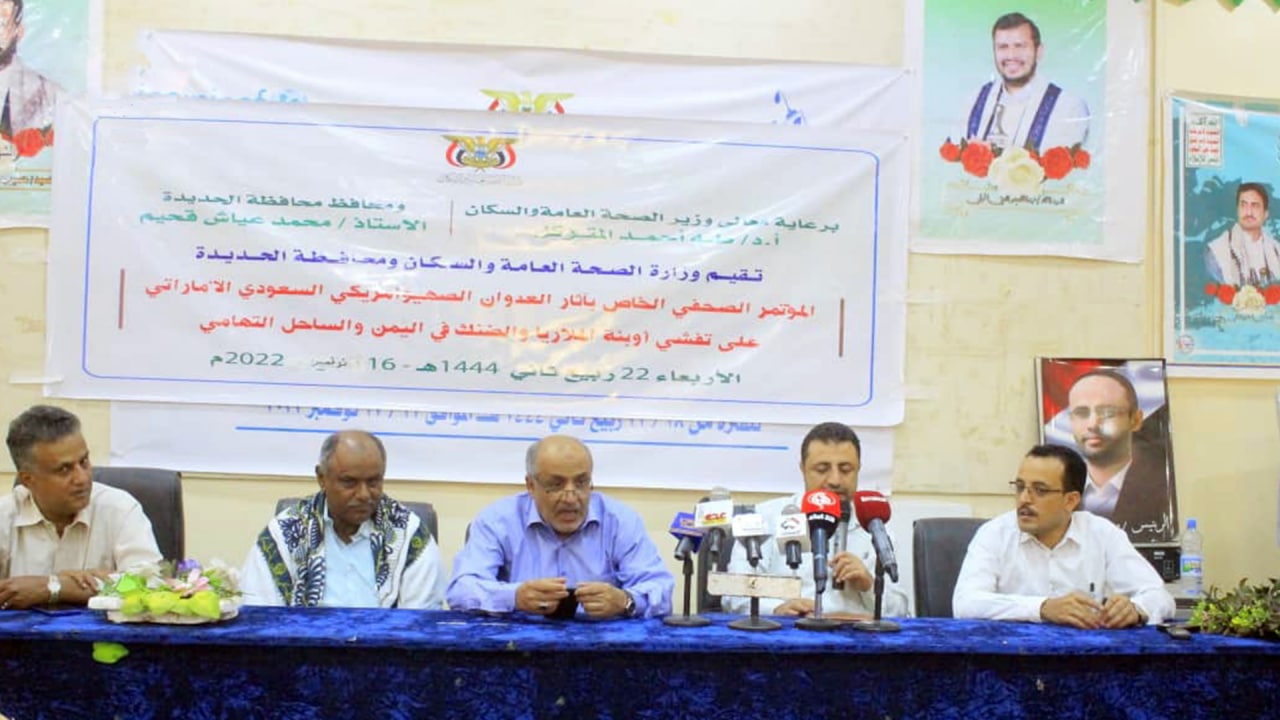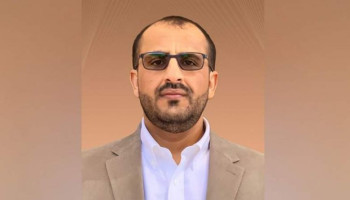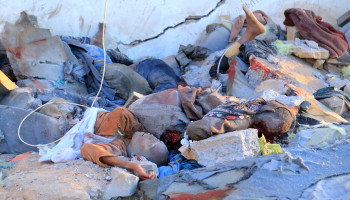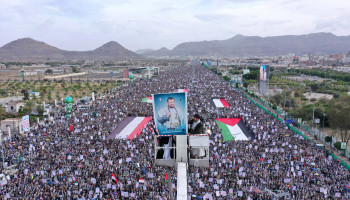The Ministry of Public Health and Population and the local authority in Hodeida province organized a press conference on the effects of the US-Saudi-Emirati aggression on the spread of malaria and dengue fever epidemics in Yemen and the Tihama coast.
At the conference, the Undersecretary of the Ministry of Health for the Primary Care Sector, Dr. Muhammad Al-Mansour, referred to the efforts of the Ministry and its office in the provincein combating epidemics and diseases in which aggression had the greatest role in spreading them.
He pointed to the plans and programs of the Ministry of Health implemented to combat malaria and epidemics since the beginning of the season in light of the scarcity of capabilities. He indicates that the continuation of the aggression and blockade on Yemen contributed to the spread of epidemics and diseases and increased the incidence of them significantly, especially after the activities, programs and plans of the national program to combat malaria during the past years faltered. , as a result of scarcity of capabilities.
He stated that the faltering of the activities and plans of the malaria control program led to an increase in malaria cases from 513,000 in 2015 to 1,100,000 in 2019, especially after the disease spread to new areas in a number of districts of Hodeida and Hajjah due to the displacement of citizens.
Al-Mansour confirmed that dozens of outbreaks of dengue and chikungunya fever were recorded, which started from the Al-Jarrahi Directorate in Al-Hodeida, and spread to Hajjah province, and the number of infections exceeded 100,000 cases by the end of 2019.
He also indicated that the number of deaths due to malaria and dengue fever reached more than 260,000 cases from 2015 AD until the end of 2019 AD, despite the efforts made to combat epidemics.
Al-Mansour touched on the direct and indirect causes that led to the outbreak of epidemics, including aggression and blockade, and the halting of the operational budgets of the health sector, which contributed to the cessation of disease control activities, as well as the interruption of the “malaria-free Arabian Peninsula” grant, which is estimated at about $38 million during the period 2014-2020. In addition to the damage suffered by the infrastructure of the anti-malaria program as a result of being targeted by the aggression warplanes.
It dealt with the economic effects of the aggression and the suspension of salaries, which greatly affected the ability of citizens to access health services and medical diagnosis.
And he indicated that the closure of the ports led to the delay in the arrival of one million and 500 thousand mosquito nets saturated with pesticides and the deprivation of three million citizens of protection from diseases, as well as the delay in the arrival of medicines to treat malaria cases and the periodic depletion of stocks and vector control supplies such as pesticides, spraying and protection tools , considering this as reasons that hindered control activities and their implementation. In time, this led to the exposure of hundreds of thousands of citizens to mosquito-borne diseases.
The Undersecretary of the Ministry of Health called on international organizations operating in Yemen to assume responsibility by continuing and raising the level of support for the health sector, especially with regard to combating diseases and epidemics.
While the Undersecretaries of Al-Hodeida province, Abdul-Jabbar Ahmed Muhammad and Muhammad Hulaysi, indicated that Al-Hodeida is one of the provinces that suffer most from diseases and epidemics, being a coastal province, which makes it suitable for the spread of diseases and epidemics, especially malaria, dengue fever, and others.
They stressed the need to unite and unify efforts to limit the spread of epidemics and diseases. They praised the efforts of the health office in the governorate in facing the challenges facing the health sector in the province, despite the scarcity of capabilities.
Abdul-Jabbar and Hulaisi stressed the importance of the role of the media in spreading awareness and community education on how to prevent diseases and limit their spread.
Press conference on aggression effects is in spreading epidemics reveals death of 260,000 cases
الخميس, 17 نوفمبر 2022







